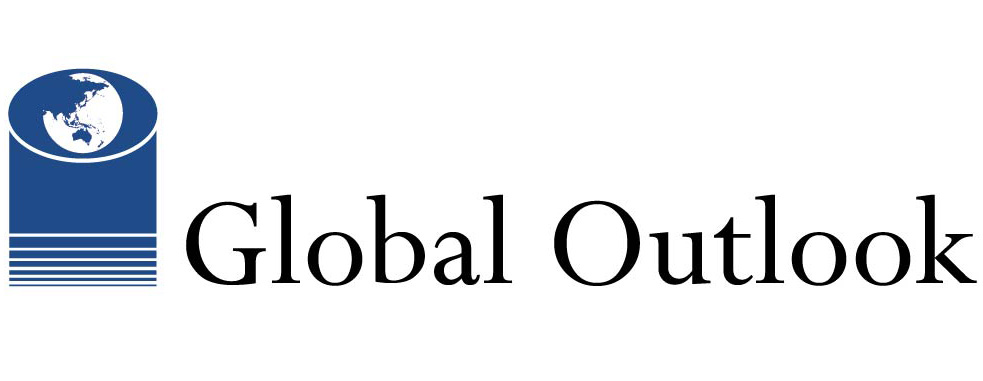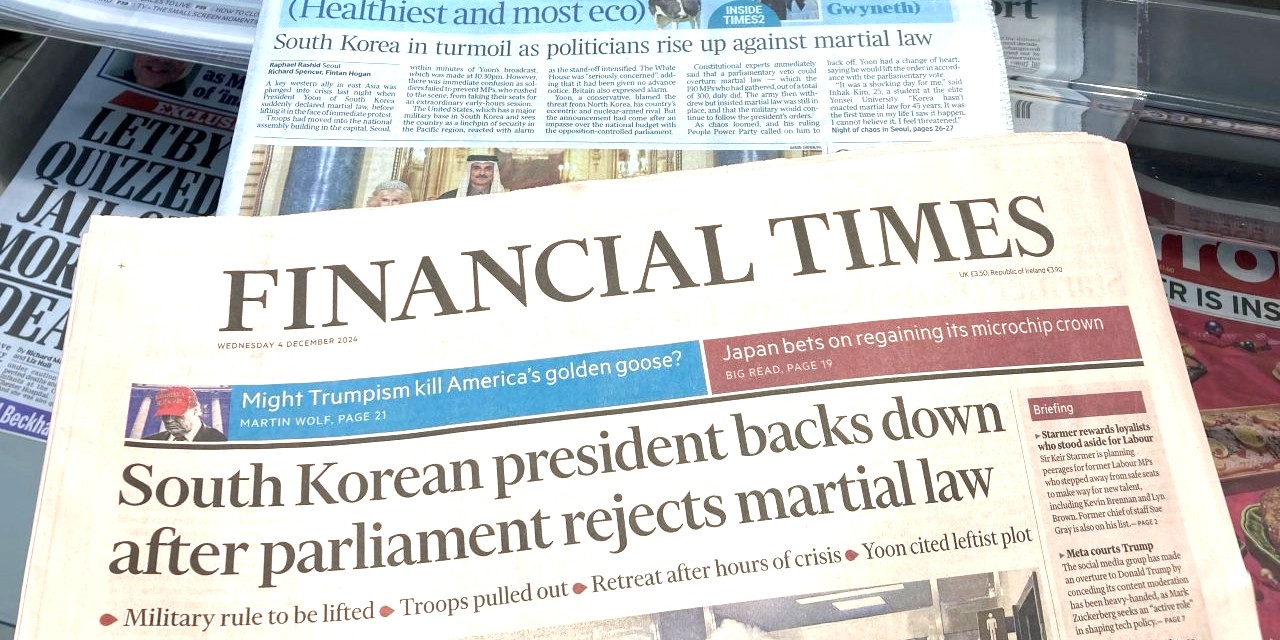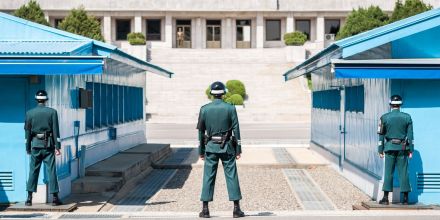
Curated expert opinion on intractable contemporary issues
Global Outlook: Peace and Security in Northeast Asia
Korea Will Soon Face a Security Dilemma Like Europe’s
By Chung-in Moon | 03 March, 2025
There are concerns that Europe could be left on the sidelines if Trump forges a strategic partnership with Russia to help the US manage its rivalry with China. Korea will soon confront the same security dilemma Europe currently faces
America’s Three Schools of Thought on Korea’s Political Situation
By Chung-in Moon | 22 January, 2025
If the Cold War anti-communists get in Trump’s ear, it could mean crisis for the alliance.
Trump 2.0: Curse or Blessing?
By Chung-in Moon | 08 January, 2025
The advent of Trump 2.0 signals bad omens for South Korea’s national security and economy. Trump-phobia is widespread in South Korea.
The Maddening Farce of Yoon Suk-Yeol’s Presidency
By Chung-in Moon | 18 December, 2024
Unprincipled, lawless, ignorant and incompetent — how perilous to place a nation in the hands of such a leader!
Three Options for Korea as It Confronts the Return of Trump
By Chung-in Moon | 20 November, 2024
Trump’s reelection is creating joy and grief in equal measures around the world. But how will Korea be affected?
Moon Chung-in on Ukraine, the Korean Peninsula, and the US Presidential Election
By Jason Morgan and Kenji Yoshida | 07 November, 2024
“In general, there is no public backing for South Korea’s deeper involvement in Ukraine. And this is common sense.”
The views and opinions expressed in Global Outlook are those of the authors and do not necessarily reflect the official policy or position of Toda Peace Institute.
Korea Will Soon Face a Security Dilemma Like Europe’s
By Chung-in Moon | 03 March, 2025
There are concerns that Europe could be left on the sidelines if Trump forges a strategic partnership with Russia to help the US manage its rivalry with China. Korea will soon confront the same security dilemma Europe currently faces
America’s Three Schools of Thought on Korea’s Political Situation
By Chung-in Moon | 22 January, 2025
If the Cold War anti-communists get in Trump’s ear, it could mean crisis for the alliance.
Trump 2.0: Curse or Blessing?
By Chung-in Moon | 08 January, 2025
The advent of Trump 2.0 signals bad omens for South Korea’s national security and economy. Trump-phobia is widespread in South Korea.
The Maddening Farce of Yoon Suk-Yeol’s Presidency
By Chung-in Moon | 18 December, 2024
Unprincipled, lawless, ignorant and incompetent — how perilous to place a nation in the hands of such a leader!
Three Options for Korea as It Confronts the Return of Trump
By Chung-in Moon | 20 November, 2024
Trump’s reelection is creating joy and grief in equal measures around the world. But how will Korea be affected?
Moon Chung-in on Ukraine, the Korean Peninsula, and the US Presidential Election
By Jason Morgan and Kenji Yoshida | 07 November, 2024
“In general, there is no public backing for South Korea’s deeper involvement in Ukraine. And this is common sense.”
The views and opinions expressed in Global Outlook are those of the authors and do not necessarily reflect the official policy or position of Toda Peace Institute.





